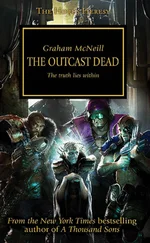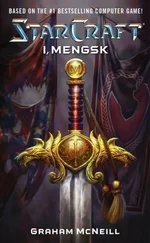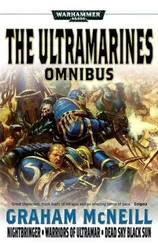Graham McNeill - A Thousand Sons
Здесь есть возможность читать онлайн «Graham McNeill - A Thousand Sons» весь текст электронной книги совершенно бесплатно (целиком полную версию без сокращений). В некоторых случаях можно слушать аудио, скачать через торрент в формате fb2 и присутствует краткое содержание. Жанр: Боевая Фантастика. Описание произведения, (предисловие) а так же отзывы посетителей доступны на портале библиотеки ЛибКат.
- Название:A Thousand Sons
- Автор:
- Жанр:
- Год:неизвестен
- ISBN:нет данных
- Рейтинг книги:3 / 5. Голосов: 1
-
Избранное:Добавить в избранное
- Отзывы:
-
Ваша оценка:
- 60
- 1
- 2
- 3
- 4
- 5
A Thousand Sons: краткое содержание, описание и аннотация
Предлагаем к чтению аннотацию, описание, краткое содержание или предисловие (зависит от того, что написал сам автор книги «A Thousand Sons»). Если вы не нашли необходимую информацию о книге — напишите в комментариях, мы постараемся отыскать её.
A Thousand Sons — читать онлайн бесплатно полную книгу (весь текст) целиком
Ниже представлен текст книги, разбитый по страницам. Система сохранения места последней прочитанной страницы, позволяет с удобством читать онлайн бесплатно книгу «A Thousand Sons», без необходимости каждый раз заново искать на чём Вы остановились. Поставьте закладку, и сможете в любой момент перейти на страницу, на которой закончили чтение.
Интервал:
Закладка:
heartbeat. Lemuel took a drink from his canvas-wrapped canteen, the water warm and gritty but
deliciously welcome. Three more canteens lay in the pack next to him, but they would only last the
rest of the afternoon. By nightfall, he would need to refill them, for the remorseless heat let up only
marginally during the hours of darkness.
“How can anyone live in this heat?” he wondered aloud for the hundredth time.
“They don’t,” said a woman’s voice behind him, and he smiled at the sound. “They mostly live
in the fertile river deltas further north or on the western coast.”
“So you said, my dear Camille,” he said, “but to willingly trek from there to this desolate place
seems to defy all logic.”
The speaker moved into view, and he squinted through the sun’s glare at a young woman
dressed in a tight-fitting vest, lightweight cut-off fatigues and dusty sandals. She carried a
combination vox-recorder and picter in a sling around her neck, and a canvas shoulder bag stuffed
with notebooks and sketchpads.
Camille Shivani cut an impressive figure with her sun-browned skin, long dark hair bound up
beneath a loose turban of wrapped silk and dark glare-shields. Her skin was ruddy brown, her
manner forthright, and Lemuel liked her immensely. She smiled down at him, and he gave her his
best, most winning smile in return. It was a wasted effort; Camille’s appetites did not include the
likes of him, but it never hurt to be courteous.
“Lemuel, when it comes to humanity, even lost strands of it, you should know that logic has
precious little to do with how people behave,” said Camille Shivani, brushing her hands together to
clear dust from the thin gloves she always wore.
“So very true. Why else would we linger here when there’s nothing worth remembering?”
“Nothing worth remembering? Nonsense, there’s lots to learn here,” she said.
“For an archaeohistorian, maybe,” he said.
“I spent a week living with the Aghoru, exploring the ruins their villages are built upon. It’s
fascinating; you should come with me next time I make a trip.”
“Me? What would I learn there?” he asked. “I study how societies form after compliance, not
the ruins of dead ones.”
“Yes, but what was there before has an impact on what’ll follow. You know as well as I do that
you can’t just stamp one civilisation on top of another without taking into account the previous
culture’s history.”
“True, but the Aghoru don’t seem to have much history to supplant,” he said sadly. “I don’t
think what they have will long survive the coming of the Imperium.”
“You might be right, but that just makes studying them while we can even more important.”
Lemuel clambered to his feet, the effort causing him to break out in torrents of sweat.
“Not a good climate for a fat man,” he said.
“You’re not fat,” said Camille. “You’re generously portioned.”
“And you are very kind, but I know what I am,” said Lemuel, brushing his banyan free of salt
crystals. He looked around the circle of towering stones. “Where are your companions?”
“Ankhu Anen returned to the Photep an hour ago to consult his Rosetta scrolls.”
“And Mistress Eris?” he asked.
12
= Page 13 =
Camille grinned. “Kalli’s returning from taking rubbings from the deadstones on the eastern
slope of the mountain. She should be back soon.”
Kallista Eris, Camille and Ankhu Anen had spent hundreds of fruitless hours attempting to
translate the graceful, flowing runes that wove around the deadstones. So far, they had met with
limited success, but if anyone could decipher their meaning it would be this triumvirate.
“Are you any closer to translating the script on the stones?” asked Lemuel, waving a hand at the
ancient menhirs.
“We’re getting there,” said Camille, dropping her bag beside his and lifting the picter from
around her neck. “Kalli thinks it’s a form of proto-eldar, rendered in a dialect that’s ancient even to
them, which will make it next to impossible to pin down an exact meaning, but Ankhu Anen knows
of some works on Prospero that might shed some light on the runes.”
“On Prospero?” asked Lemuel, suddenly interested.
“Yes, in the Athenaeum, some big library the Thousand Sons have on their home world.”
“Did he say anything about the library?” asked Lemuel.
Camille shrugged, taking off her glare shields and rubbing her gritty eyes. “No, I don’t think so.
Why?”
“No reason,” he said, smiling as he saw Kallista Eris approaching the circle of deadstones, and
grateful for the distraction.
Wrapped in a flowing white jellabiya, Kallista was a beautiful, olive-skinned young woman
who, did she but desire it, had the pick of the male remembrancers attached to the 28th Expedition
Fleet. Not that there were many remembrancers attached; the Thousand Sons were ruthlessly
selective in choosing those allowed to accompany their campaigns and record their exploits.
In any case, Kallista declined every offer of companionship, spending most of her time with
Lemuel and Camille. He had no interest in a liaison with either woman, content simply to spend
time with two fellow students of the unknown.
“Welcome back, my dear,” he said, moving past Camille to take Kallista’s hand. Her skin was
hot, the fingers charcoal stained. She carried a drawstring bag over one shoulder, rolled up sheets of
rubbing paper protruding from its neck.
Kallista Eris was a student of history, one whose field of expertise was the manner in which
knowledge of the past was obtained and transmitted. Once, in the library aboard the Photep, she had
shown Lemuel holo-picts of a crumbling text known as the Shiji, a record of the ancient emperors of
a vanished culture of Terra. Kallista explained how its factual accuracy had to be questioned, given
that its author’s intent appeared to be the vilification of the emperor previous to the one he now
served. The veracity of any historical text, she explained, could only be interpreted by understanding
the writer’s intent, style and bias.
“Lemuel, Camille,” said Kallista. “Do you have any water? I forgot to take extra.”
Lemuel chuckled. “Only you would forget to take enough water on a world like this.”
Kallista nodded, running a hand through her auburn hair, her skin reddening even beneath her
sunburn. Her green eyes sparkled with amused embarrassment, and Lemuel saw why so many
desired her. She had a vulnerability that made men alternately want to protect or deflower her.
Strangely, she seemed oblivious to this fact.
Lemuel knelt beside his pack to retrieve a canteen, but Camille tapped him on the shoulder and
said, “Save it, looks like we’re getting some brought to us.”
He turned and lifted a hand to shade his eyes, seeing one of the Astartes walking towards them
with a bronze, oval-shaped vase held out before him. The warrior’s head was bare, apart from a
trailing topknot of black hair, and his golden-skinned features were curiously flat, his eyes dark and
hooded like a cobra’s. Despite the heat, Lemuel shivered, catching a flicker of cold power hazing
the warrior’s outline.
“Sobek,” said Lemuel.
13
= Page 14 =
“You know him?” asked Camille.
“Of him. He’s one of the Scarab Occult, the Legion veterans. He’s also Captain Ahriman’s
Practicus,” he said. Seeing Kallista’s look of incomprehension, he added. “I think it’s a rank of
Читать дальшеИнтервал:
Закладка:
Похожие книги на «A Thousand Sons»
Представляем Вашему вниманию похожие книги на «A Thousand Sons» списком для выбора. Мы отобрали схожую по названию и смыслу литературу в надежде предоставить читателям больше вариантов отыскать новые, интересные, ещё непрочитанные произведения.
Обсуждение, отзывы о книге «A Thousand Sons» и просто собственные мнения читателей. Оставьте ваши комментарии, напишите, что Вы думаете о произведении, его смысле или главных героях. Укажите что конкретно понравилось, а что нет, и почему Вы так считаете.










